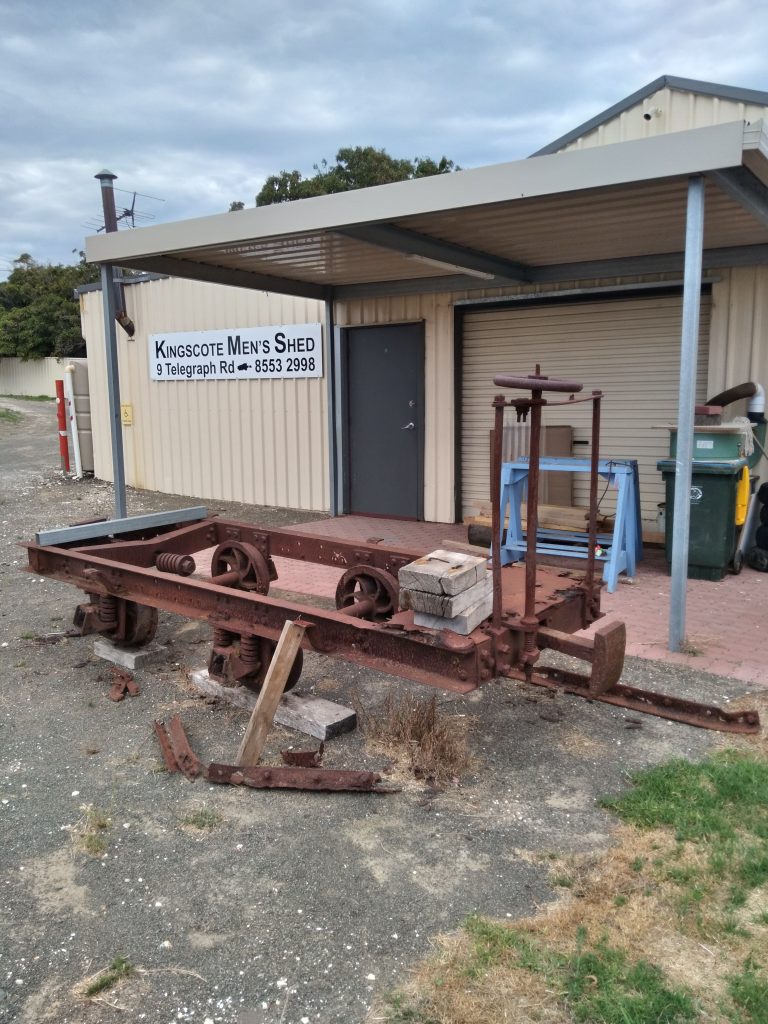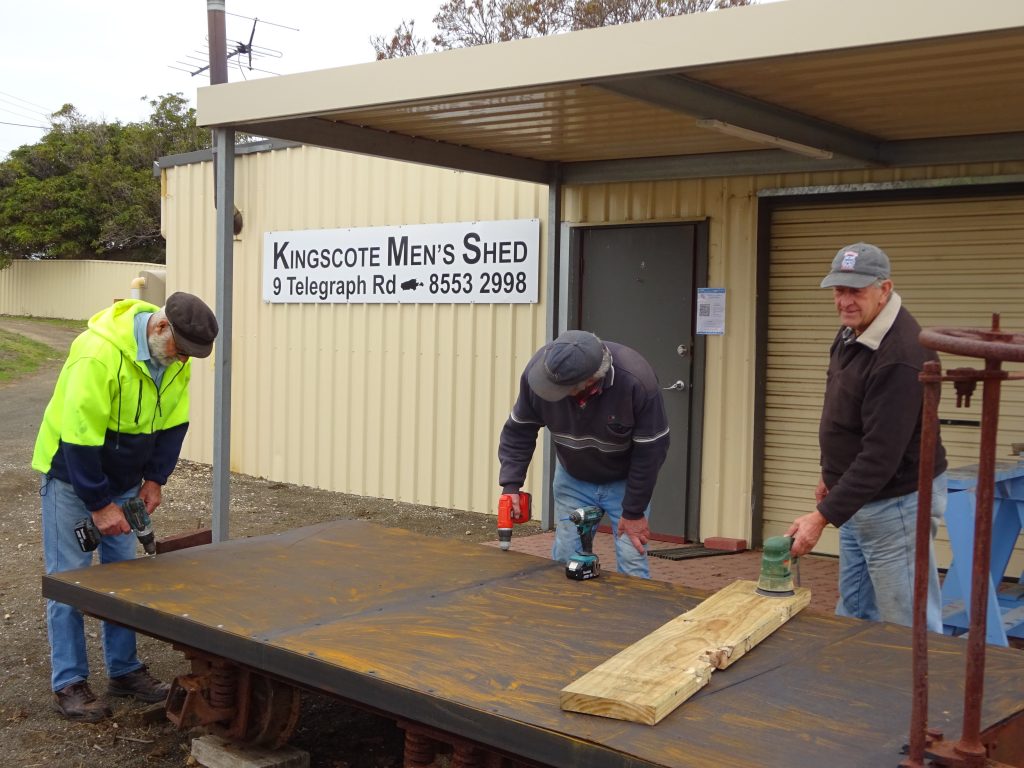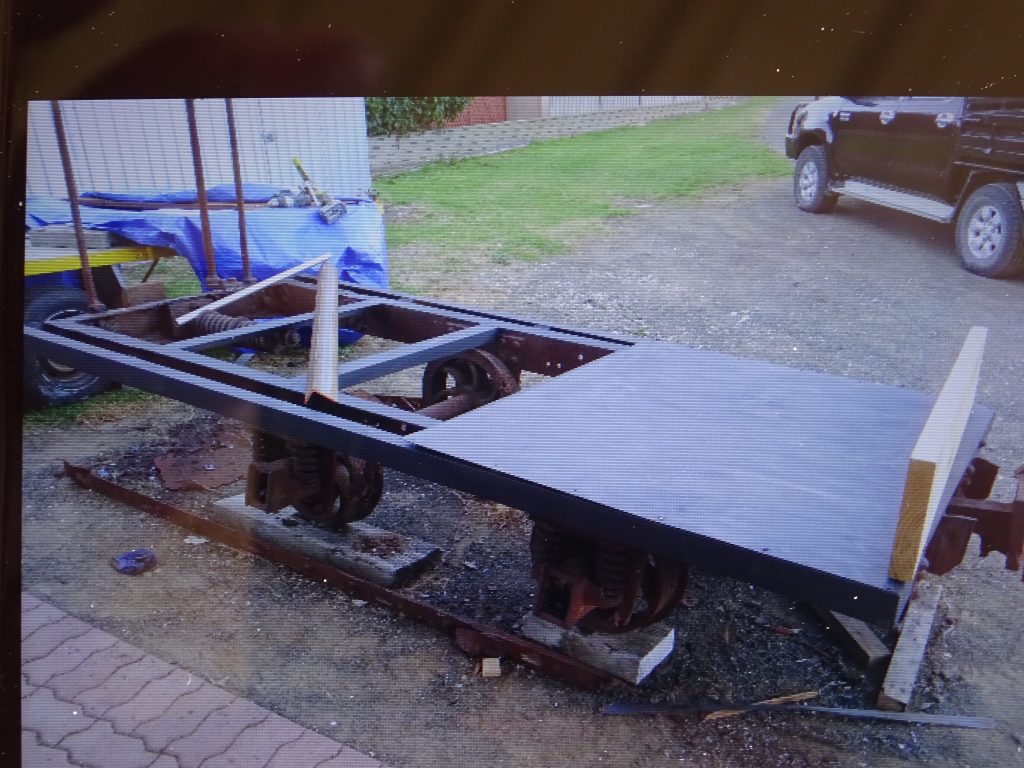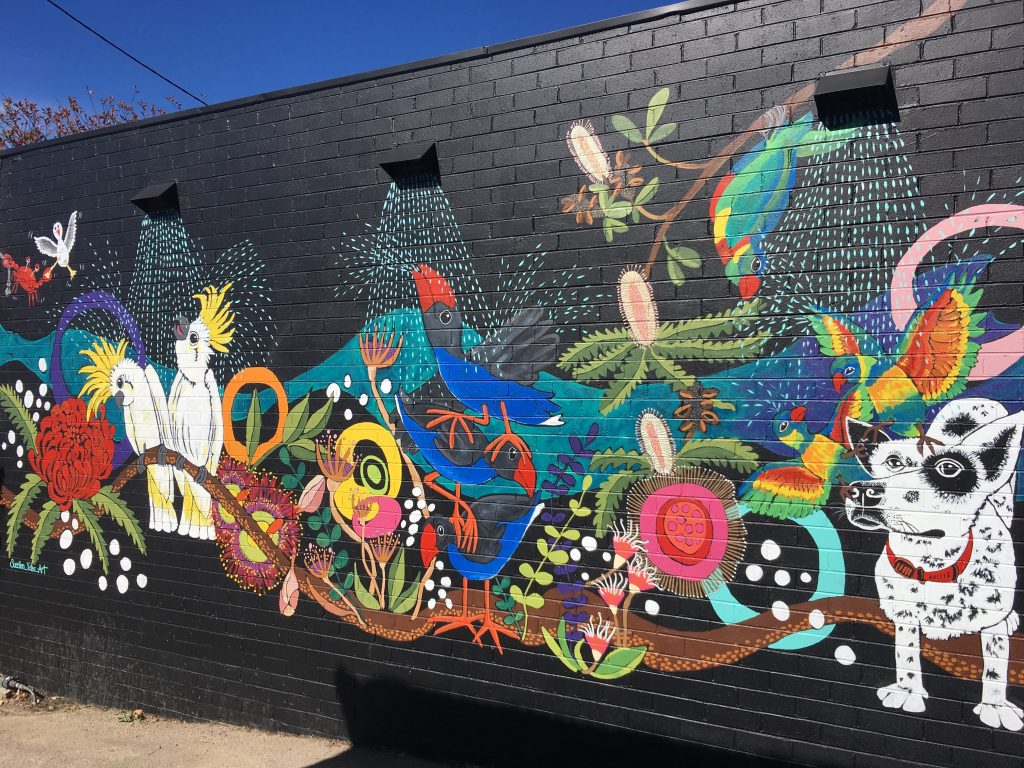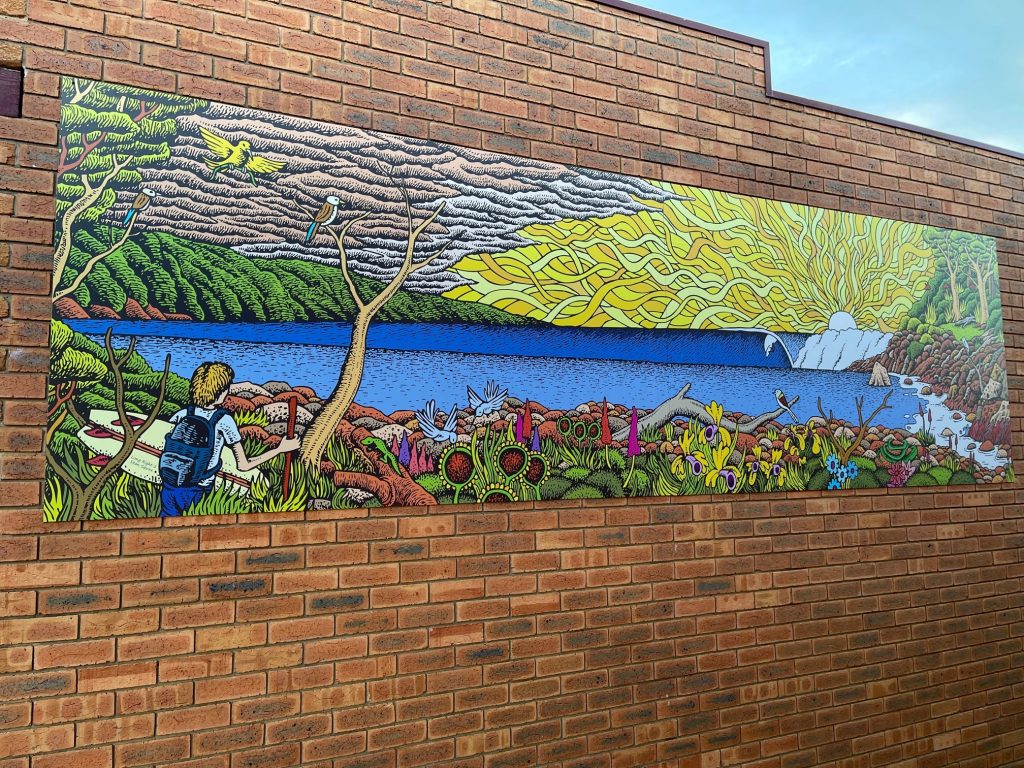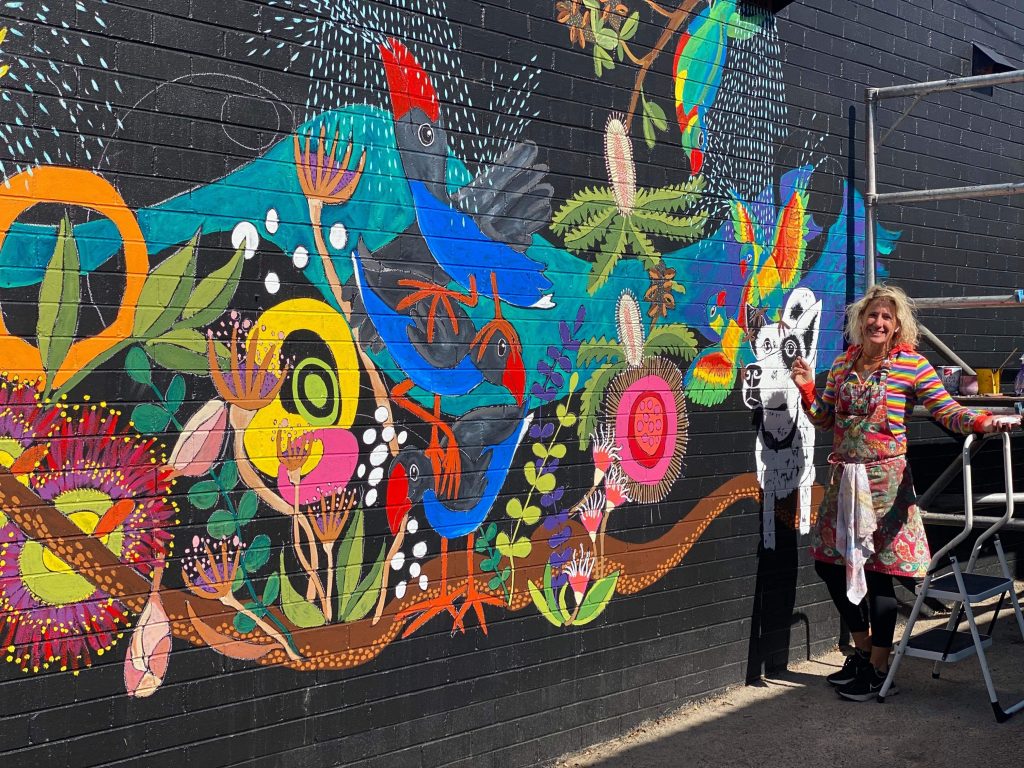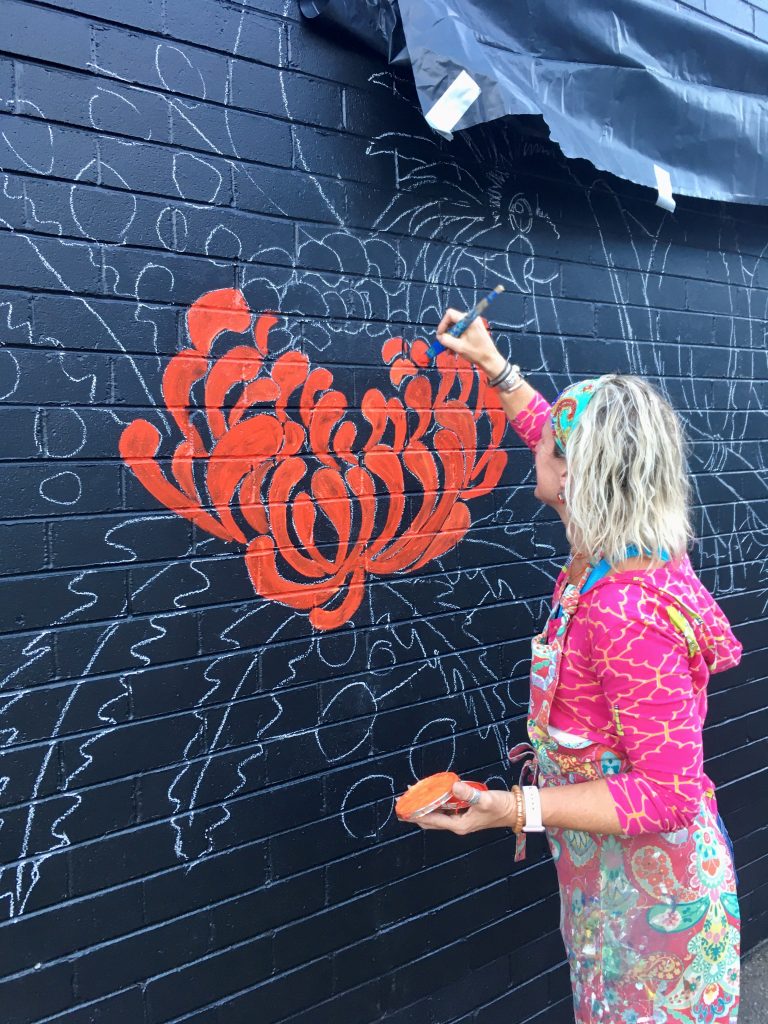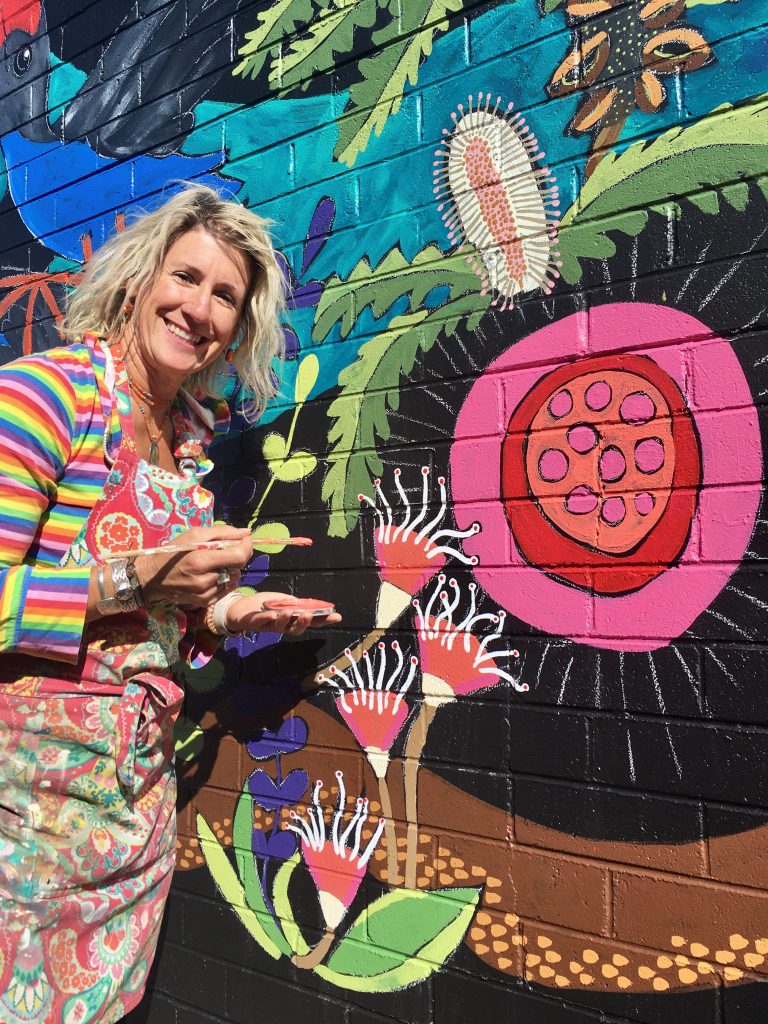Foundation for Rural & Regional Renewal (FRRR)
The restoration of an historic jetty trolley has had unexpected benefits for men’s shed and community members on Kangaroo Island. The trolley was first used in the 1840s to transport basalt along the jetty onto waiting ships. The Kingscote Men’s Shed restoration project has seen the revival of rare trade skills using tools that were used 100 years ago to make the trolley, and the formation of new connections in the community.
The Men’s Shed received a $3,683 Strengthening Rural Communities grant, funded by the Waislitz Family Foundation, in partnership with Australian Community Media, to support recovery from the 2019/20 bushfires that devastated much of Kangaroo Island. This project is one of many FRRR supported across the island to strengthen community connection and support recovery activities.
Graeme Connell, Chair of the Kingscote Men’s Shed said, “The Kingscote Men’s Shed volunteers are very proud of their achievement to restore a 100-year-old jetty trolley and preserve the history of these trolleys that were used on jetties around Kangaroo Island. The older members of the Men’s Shed were able to share their knowledge about the skills and tools used in the old ways of construction of steel products with the younger members.”
The group used social media to stimulate interest and encourage new volunteers. New skills and friendships were formed between Men’s Shed members and community volunteers working together on this historic project, which included a local secondary student. Many passers-by were keen to see the restoration in progress, with a cup of tea at the ready for anyone interested in learning more or just having a chat.
The newly restored trolley sits proudly at the Pioneer Memorial Park as a monument both to past activities that forged the town, and as a marker of recovery. It has already become a favourite destination with local visitors and community members, particularly given its location overlooking the old wharf and beautiful coastline.
The Men’s Shed has well and truly achieved its goal of delivering a shared community project to create “meaningful interactions”. The sense of achievement and confidence from the project, and the camaraderie that has come from it has boosted mental health and wellbeing, which will have lasting impact on the group and wider community.
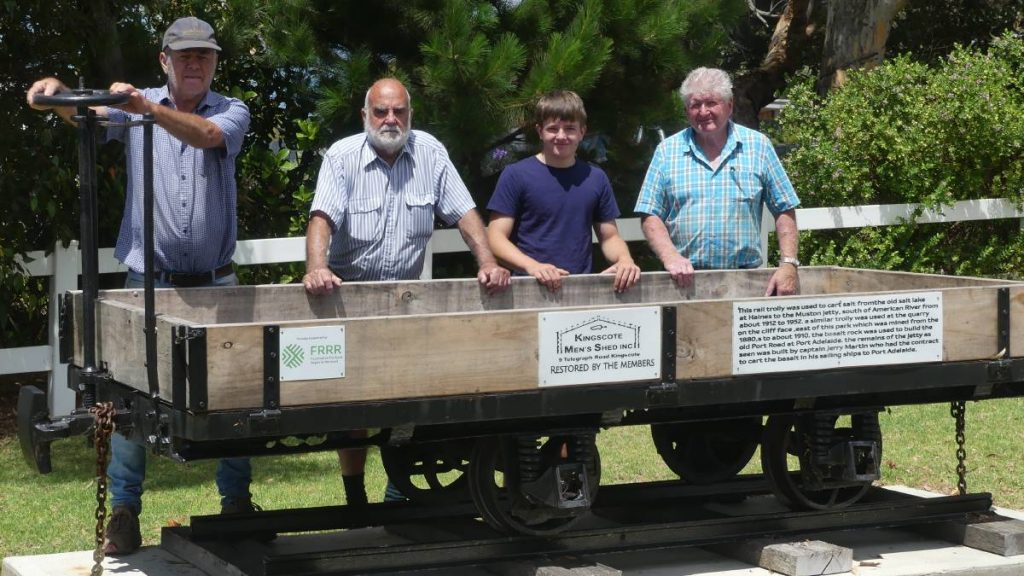
Yuin Nation
Professional artists from the Bega Valley are invigorating Pambula Village with vibrant and colourful large-scale artworks, thanks to a bushfire recovery initiative.
Six commissioned pieces now complement a 22-site historic walking tour and are providing a boost to morale, employment and tourism.
The Bega Valley LGA was among the most impacted by the 2019/20 Black Summer bushfires, with 465 houses destroyed, 1,279 rural landholders impacted and around 60 per cent of the area burnt. Pambula has also experienced drought and COVID-19. The cumulative effects of all this have resulted in the loss of livelihoods, employment, prospects, wealth, environment, sense of security and mental wellbeing.
The Waislitz Family Foundation, in partnership with Australian Community Media, joined forces with FRRR after the Black Summer bushfires to support recovery. The Pambula arts project was granted $25,000 through FRRR’s Strengthening Rural Communities program, funded by the Waislitz Family Foundation in partnership with Australian Community Media.
Pambula Business Council President Michelle Pettigrove said the road back from the region’s losses is long and daunting and the ongoing Pambula Art Project gives this community a strong sense of unity, pride and direction.
“There is a discernible buzz on the street, tourists talk about the great community spirit of the town,” she said.
Artists get to exhibit their work to a large audience while helping increase Pambula’s profile and attract visitors to the Village and extended Bega Valley region. It’s boosting sales for local businesses and creating a more culturally vibrant community.
The Art Project was also mentioned frequently by voters when Pambula was named a finalist in the NSW Small Top Tourist Town awards.
While many buildings in Pambula have some historic significance, plain brick walls of newer buildings were identified as perfect ‘canvases’. Some artworks were painted directly onto buildings, and a clever solution using Laminex and aluminium panels meant others could be installed to building facades without causing damage.
Ms Pettigrove said the artworks were not designed to overpower the existing streetscape “but rather to illuminate and amplify Pambula’s historic, cultural and environmental identity, including the history and connection to country of the Yuin People – the original custodians of our region”.
A self-guided history walking tour map has also been produced, featuring 22 of Pambula’s historic buildings and sites to shine a spotlight on the fascinating and quirky history of the village and local identities. Pambula was the birthplace of Sir William McKell, the second Australian-born Governor General, and his home is now an art gallery. Syms Covington, who served with Sir Charles Darwin on ‘The Beagle’ retired to Pambula and continued to send Darwin samples of Australian flora and fauna for many years. Covington then served as postmaster in Pambula and his house is now a popular restaurant/gallery.
Future plans for the project include adding and celebrating more Yuin Nation history in the original self-guided History Walk, following ongoing extended consultation with both the Bega Aboriginal Land Council and the Twofold Aboriginal Corporation.

